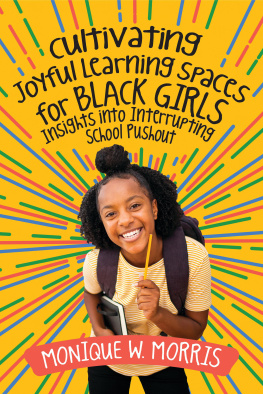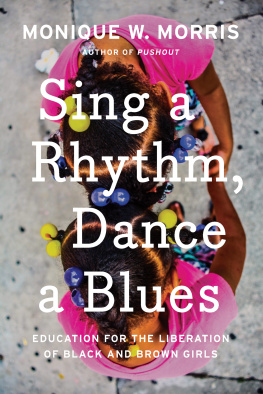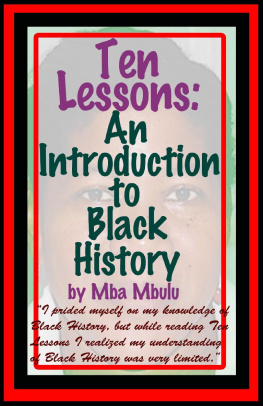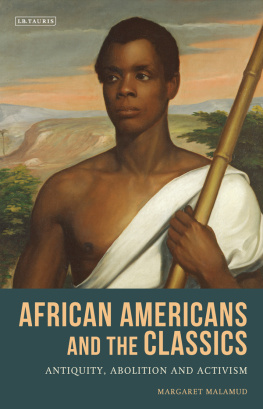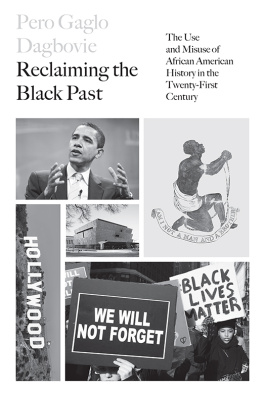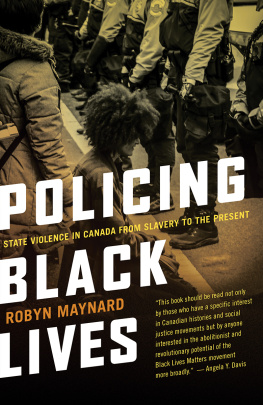Monique W. Morris is co-founder of the National Black Womens Justice Institute and formerly served as Vice President for Economic Programs, Advocacy, and Research for the NAACP. The author of the novel Too Beautiful for Words, she lives in the Bay Area with her husband and two daughters.
Khalil Gibran Muhammad is the director of the Schomburg Center for Research in Black Culture at the New York Public Library and the author of The Condemnation of Blackness: Race, Crime, and the Making of Modern Urban America.
Also by Monique W. Morris
Too Beautiful for Words: A Novel


2014 by Monique W. Morris
Introduction 2014 by Khalil Gibran Muhammad
All rights reserved.
No part of this book may be reproduced, in any form, without written permission from the publisher.
Requests for permission to reproduce selections from this book should be mailed to: Permissions Department, The New Press, 120 Wall Street, 31st floor, New York, NY 10005.
Published in the United States by The New Press, New York, 2014
Distributed by Perseus Distribution
LIBRARY OF CONGRESS CATALOGING-IN-PUBLICATION DATA
Morris, Monique W., 1972-
Black stats : African Americans by the numbers in the twenty-first century / Monique W. Morris.
pages cm
Includes bibliographical references and index.
ISBN 978-1-59558-926-2 (e-book) 1. African Americans--Social life and customs--21st century--Statistics. 2. African Americans--Social life and customs--21st century--Statistics. 3. African Americans--Statistics. 4. African Americans--Statistics. I. Title.
E185.86.M637 2014
305.8960730905--dc23
2013035282
The New Press publishes books that promote and enrich public discussion and understanding of the issues vital to our democracy and to a more equitable world. These books are made possible by the enthusiasm of our readers; the support of a committed group of donors, large and small; the collaboration of our many partners in the independent media and the not-for-profit sector; booksellers, who often hand-sell New Press books; librarians; and above all by our authors.
www.thenewpress.com
Book design and composition by Bookbright Media
This book was set in Avenir LT and Jockey
10 9 8 7 6 5 4 3 2 1
In memory of Dr. William Manning Marable
(19502011)
CONTENTS
T he United States is home to more than 40 million people of African descenta diverse community whose primary ancestry derives from the Black racial and ethnic groups of Africa. They came to the United States not only from the mother continent but also from Caribbean islands, Europe, Asia, and South America. Scholars often interpret race as a socially constructed phenomenon, its divisions shaped by common social norms, understandings, and perceptions. As legal scholar Ian Haney Lpez wrote, Human fate still rides upon ancestry and appearance. The characteristics of our hair, complexion and facial features still influence whether we are free or enslaved.... Human interaction rather than natural differentiation must be seen as the source and continued basis for racial categorization. Race, as a social construct, continues to play an important role in shaping the life outcomes of individuals in the United States. The complexity, versatility, and diversity of life among Black Americans have been documented and widely discussed for more than four centuries.
This book is designed to provide a statistical snapshot of the lives of Black Americans, juxtaposing where possible their conditions with those of other racial and ethnic groups. The use of data is a powerful tool for understanding how these conditions may have changed or where they have remained the same. Data track specific points along the color line that W.E.B. Du Bois famously declared would dominate the modern public discourseand consciousnessabout human relations in the United States. Because data are able to highlight both equality and disparity, they remain an essential component in evaluating progress on racial equity, building a more inclusive democracy, illustrating our narratives, and deciding where to intensify our advocacy for racial justice.
The data in this book were collected from a variety of secondary sources, including, but not limited to, federal agencies, foundations, journals, nonprofit organizations, and corporate surveys. Where appropriate, figures presented here have been rounded to the nearest whole number or nearest tenth. Where political or research concepts are introduced, I have offered additional information on the context or framework that informs the statistics included in that section.
Black and African American are used interchangeably in this book to refer to people of African descent. African American always refers to people of African descent who are nationally identified with the United States. Black is a larger umbrella term that describes individuals throughout the African diaspora, including Caribbean and Latino Americans.
Every day Black Americans are the subject of memes that do little more than caricature their life experiences for public consumption. While the election of President Barack Obama delivered an image more powerful than many could have imagined, we must not lose sight of the more general narrative, and that can be constructed through data.
Throughout his work, social scientist Manning Marable reminded us that history is not only about the times long past: understanding contemporary Black history is crucial to understanding our collective experiences and our interactions with public policies. Each of us has the ability to record a unique story that adds to this rich and inclusive tradition. Examining the information in these pages can inform and develop our thinking about the historic and contemporary conditions and contributions of Black people in America.
Monique W. Morris
August 2013
Oakland, California
F irst, I would like to thank the ancestors for their struggle for human dignity and racial justice. Their fight is one that we continue.
No book of statistics on Black Americans would be possible without the rigorous and thoughtful work of the researchers and scholars across the country who collect and analyze data to help bring to the fore the trends that inform our understanding of how African Americans are affected by a host of issues and social policies. I would specifically like to thank the African American and Africana studies scholars, historians, sociologists, economists, educators, environmentalists, social scientists, statisticians, biological scientists, media professionals, criminologists, legal advocates, and other scholar practitioners who collect statistics associated with the topics presented in this book. I would like to thank Steven Pitts and Njema Frazier, who took the time to speak with me regarding some important nuances of their work, which I have presented in this book. I am deeply grateful for my ongoing thought-partnerships with Dereca Blackmon, Stephanie Bush-Baskette, Sarah Bacon, Lesleigh Irish-Underwood, Erika Irish Brown, Lenneal Henderson, Shawn Ginwright, Doug Paxton, and Kimberl Crenshaw. Our conversations strengthen my work and me. Thank you!
Next page

